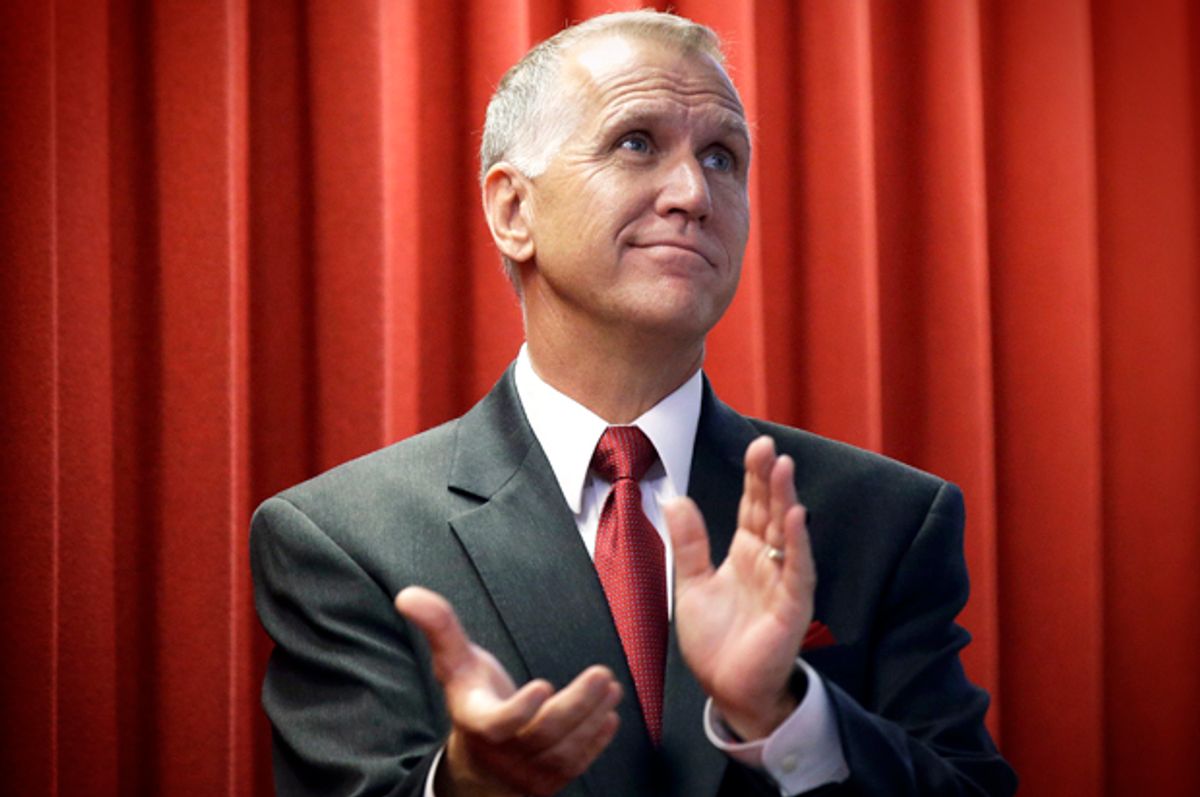Thom Tillis’ recent past is catching up to him, it would seem. Two months ago, a 2011 video surfaced of the North Carolina Republican Senate candidate expounding on the need to pit recipients of government assistance against one another so that Republicans can “divide and conquer.” Now, Daniel Strauss at Talking Points Memo reports that Tillis, during a 2012 appearance on a local news program, “said that the ‘traditional’ voting bloc of his home state wasn't growing like as minority populations.”
Here’s the context of Tillis’ comments:
If you take a look, you mentioned the Hispanic population —the African American population, there's a number of things that our party stands for that they embrace. I think we have to do a better job of communicating it. I think we have to do a better job of being out there in between elections, garnering support for the things that we're trying to advance. And I think that we need a focus on limited government and free markets which is something that's appealing to everybody. That kind of work will position us for those growing sectors. The traditional population of North Carolina and the United States is more or less stable. It's not growing. The African American population is roughly growing but the Hispanic population and the other immigrant populations are growing in significant numbers. We've got to resonate with those future voters.
Asked for comment by TPM on what he meant by “traditional population,” Tillis’ campaign offered up a heaping pile of nonsense. “’Traditional’ North Carolinians refers to North Carolinians who have been here for a few generations. A lot of the state's recent population growth is from people who move from other states to live, work, and settle down in North Carolina. Thom Tillis for example.”
Come on… Tillis was not talking about transplants to the Tar Heel State. He said “the traditional population of North Carolina and the United States.” The glaringly obvious point of his remarks was to contrast African Americans and Hispanics with the “traditional population,” by which he meant white people.
That’s the only explanation that makes sense, both as a matter of logic and when you consider who Thom Tillis is and what his politics are. Tillis’ victory in the Republican Senate primary was widely cast as a victory for the GOP establishment, given that Tillis had the backing of figures like Mitch McConnell, Mitt Romney, and other party bigwigs. But Tillis is a tea party guy, and his politics are very conservative. And he’s a politician in a state that is undergoing dramatic demographic shifts, with a shrinking share of the white population and rapid growth among minorities. Tillis’ use of “traditional” is consistent with how conservatives use it generally in the context of social change: to describe the status quo that they are comfortable with ("traditional marriage," "traditional values," etc).
And therein lies the irony in Tillis' comments. He was talking about the need to expand the appeal of the GOP and “better communicate” that the Republican Party has policies that appeal to non-white voters, but in doing so he excluded African Americans and Hispanics from the “traditional population,” thus proving his own point that Republicans are really bad at that sort of outreach.

Shares